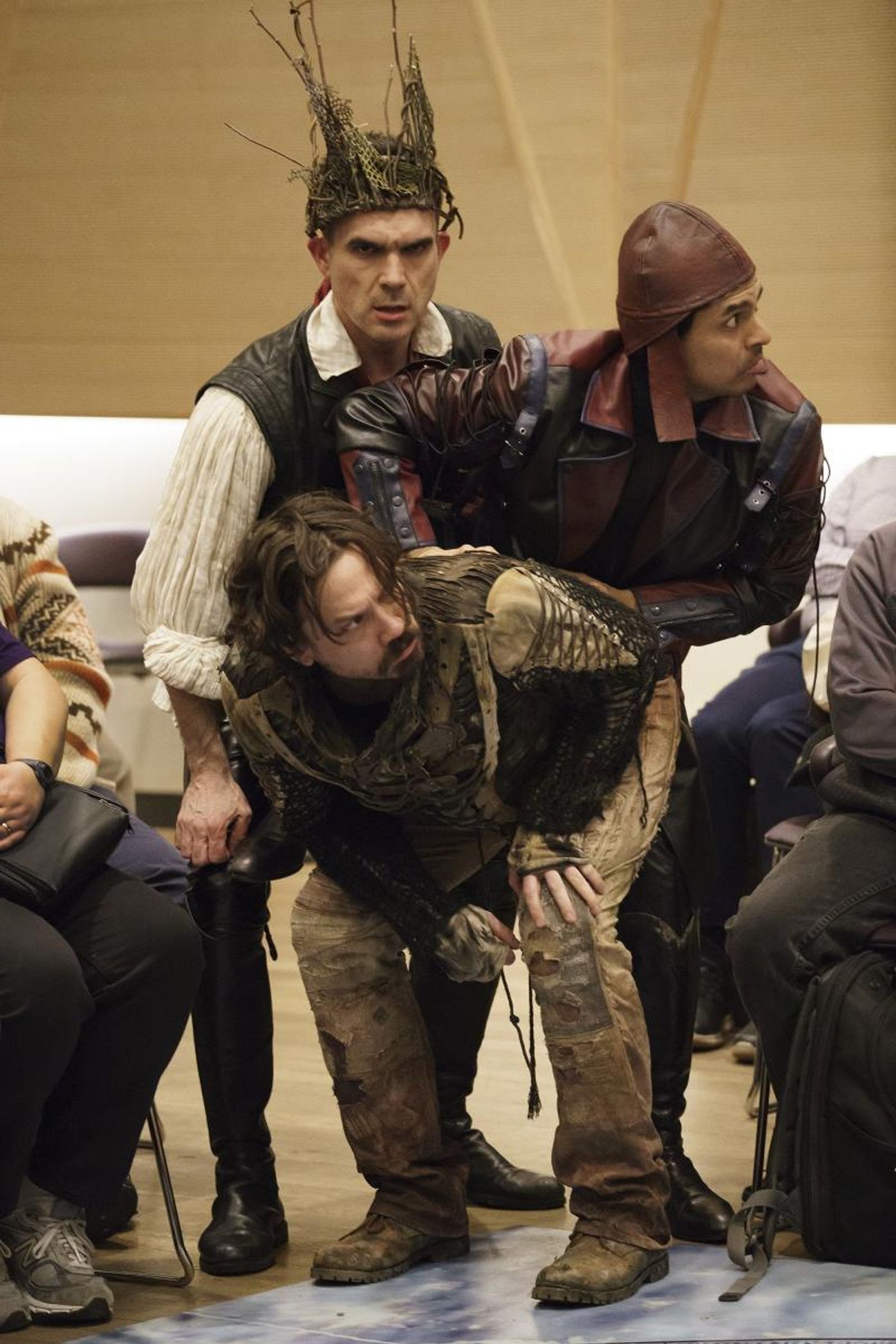Review: Director Laurie Woolery Casts Shakespeare's THE TEMPEST With An Eye Toward Establishing a Non-Patriarchal Paradise
Though Shakespeare's The Tempest commences with a spectacular act of revenge, director Laurie Woolery stresses in her program notes for Mobile Unit's thoroughly enrapturing new production her intention to highlight the play's moments of forgiveness, leaving audiences to ponder "what it means to use one's power to heal rather than to destroy and what it means to break the a cycle of retribution and violence."

(Photo: Joan Marcus)
Towards that end, Woolery's mounting, the latest in the program that sends small-scale, trimmed down productions of Shakespeare plays to shelters, nursing homes and correctional facilities before settling in for a run of free performances at The Public Theater, presents two of the piece's male characters as women and another as non-binary (the pronouns have changed, but not the names), creating a distinction between societies existing inside and outside patriarchal domination.
At the center of the storm, so to speak, is the beautiful, understated, strong and compassionate performance of Myra Lucretia Taylor as Prospero, the disposed Duke of Milan who was exiled off to sea and usurped by her brother Antonio (Dan Domingues), with the support of Alonso, King of Naples (J.D. Webster).
Thanks to the kindness of royal counselor Gonzalo (Nancy Rodriguez), she and her young daughter Miranda (wide-eyed and inquisitive Sam Morales), arrived at an enchanted island populated by invisible spirits not only with sufficient food and clothing, but with Prospero's beloved books revealing the secrets of the magic arts.
That was a dozen years ago, and while perfecting her skills, Prospero has obtained the services of the spirit Ariel (Danaya Esperanza), who is regarded here as gender-fluid. She has also imprisoned the island's only male figure, Caliban (portrayed by Christopher Ryan Grant as a sneering brute) after his attempt to rape Miranda, certain that if free he would pursue his desire to populate the island with their offspring.
With Ariel's help, Prospero has arranged for a ship containing those who betrayed him to be struck by a horrible storm, but with everyone safely washed to her island's shore so she may confront them for their actions.
The survivors also include Alonso's son, Ferdinand (soft-mannered Jasai Chase-Owen), who, perhaps because he's yet to acquire patriarchal attitudes, is Prospero's choice to wed her daughter. The two are immediately drawn to each other, and Woolery's edited version of the text omits the line where Ferdinand requires Miranda to be a virgin in order to marry him.

and Reza Salazar (Photo: Joan Marcus)
Meanwhile, some terrifically executed broad comic antics are performed when Caliban is found, and offered his first taste of alcohol, by Alonso's drunken butler Stephano (Domingues) and the jester Trinculo (Reza Salazar), as the three inebriates plot to displace Prospero once again.
As is traditional with Mobile Unit productions, the play is performed on an easily portable surface, with the one provided by designer Claire DeLiso enhancing an astrological theme. Ritual choreography by movement director Christopher Windom is performed by the company to composer Michelle J. Rodriguez's percussion score.
And as is also traditional with Mobile Unit productions, the goal is to reach out to audience members who may never have attended live theatre at all, much less a Shakespeare play, carrying on the important mission established by Joseph Papp decades ago.
Reader Reviews

Powered by
|
Videos

